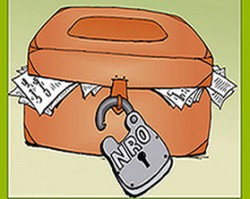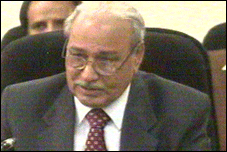 Much has been discussed about the in-famous National Reconciliatory Ordinance where 5,800 crooks were pardoned by the then President Pervaiz Mushrraf as an attempt to broker a deal for his own extended stay as the President of Pakistan. This NRO in effect opened the flood gates to allow thousands of white collar criminals and murderers to return back to Pakistan and reestablish themselves to (re)loot Pakistan yet again, and by golly in the short spam of three years they have done a brilliant job, heck third time around they went straight into business, since now these were all hardened criminals now given an executive golden key to make millions courtesy of a selfish dictator who thought his own stay in Islamabad was more precious then the country itself
Much has been discussed about the in-famous National Reconciliatory Ordinance where 5,800 crooks were pardoned by the then President Pervaiz Mushrraf as an attempt to broker a deal for his own extended stay as the President of Pakistan. This NRO in effect opened the flood gates to allow thousands of white collar criminals and murderers to return back to Pakistan and reestablish themselves to (re)loot Pakistan yet again, and by golly in the short spam of three years they have done a brilliant job, heck third time around they went straight into business, since now these were all hardened criminals now given an executive golden key to make millions courtesy of a selfish dictator who thought his own stay in Islamabad was more precious then the country itself
The NRO was brokered in late 2007 where then we all had raised some hell about this criminal bill, but the movers and shakers of the country thought it in “their” best interest to keep this list private and extend large pardoning pleas to all the beneficiaries, be it thousands of murderers in Karachi or the ruthless Mr. 10% criminal like Asif Zardari and his team cronies, all permitted to enter back into Pakistan with a precious to-die-for get-out-of-jail-card.
Now it seems that there is an attempt to turn the tables and some movers and shakers(?) within “the establishment” think that this is now an opportune time to make this list public after almost three years. We must understand this move is definitely a serious attempt to turn up the heat in Islamabad and make all these crooks a little uncomfortable (times-up) and possibly turn the tables, making way for another set of so-called cleaner leadership to assume power, which for now mostly means the Sharif Brothers
The list is endless and features criminal leaders from every corner of Pakistan, belonging to practically all parties which occupy our assemblies and ministries. It should be a shocking that it is at the hands of proven criminals that Pakistan is expected to come out of this economic and security crisis. It is this very same leadership that has been negotiating with the Americans, helping them (or not) in their war on terror and also guiding them in their efforts into Swat and Waziristan.
The list includes leaders from PPP, ANP, MQM, PML-F and some PML-N leaders (the main Sharif brothers were omitted as they then were not allowed to sleep with the enemy) [though they would have loved to]. The list is endless that if the people of Pakistan were to outlaw each and every politician from occupying public office, I assure you most of our parliament and cabinet would be found empty.
Dawn The list has names of about 5,800 people who were facing financial irregularities and criminal cases. The list obtained by Dawn shows that 3,775 cases (mostly criminal) were against leaders and workers of the Muttahida Qaumi Movement (MQM). Leaders of the Pakistan People’s Party, Pakistan Muslim League-N, Jamiat Ulema-i-Islam (Fazl) and Awami National Party are also among the beneficiaries. Prominent leaders and bureaucrats who enjoyed immunity under the NRO include President Asif Ali Zardari, Interior Minister Rehman Malik, Nusrat Bhutto, former minister Yousuf Talpur, PPP secretary general Jehangir Badr, Pakistan’s Ambassador to the US Hussain Haqqani, secretary general to the president Salman Farooqi, former chairman of Pakistan Steel Mills Usman Farooqi, Sindh Governor Ishratul Ibad, former interior minister Aftab Sherpao, former minister Anwar Saifullah, former MNA of N-League Haji Kabir, Agha Siraj Durrani, former provincial minister Ghaniur Rehman, Habibullah Kundi, Sardar Mansoor Leghari, Mir Baz Khetran, Aslam Hayyat Qureshi, Saeed Mehdi, Javed Qureshi, Siraj Shamsuddin and former secretary to the president Rasool Baksh Raho.
Officials of the law ministry and the National Accountability Bureau (NAB) were not sure whether cases against Mian Nawaz Sharif, Punjab Chief Minister Shahbaz Sharif and PML-N leader Ishaq Dar, including the Hudaibya Paper Mills case, had been settled under the NRO or were still pending in courts….




 ISLAMABAD: Government of Pakistan Saturday released the list of the beneficiaries of the National Reconciliation Ordinance on the directives of Prime Minister Syed Yousuf Raza Gilani.
ISLAMABAD: Government of Pakistan Saturday released the list of the beneficiaries of the National Reconciliation Ordinance on the directives of Prime Minister Syed Yousuf Raza Gilani.







